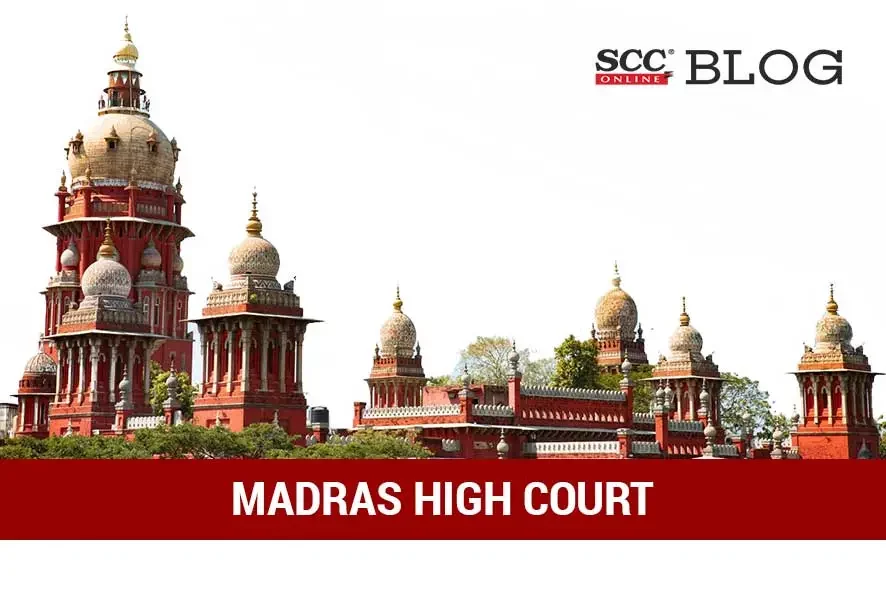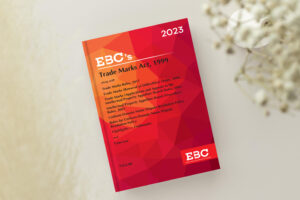Madras High Court: In a civil suit filed under Order IV Rule 1 of the Original Side Rules read with Order VII Rule 1 of the Code of Civil Procedure, 1908 and Sections 134 and 135 of the Trade Marks Act, 1999 for seeking permanent injunction restraining the defendant from infringing plaintiff’s registered trade mark ‘SANGEETHA’ by using the offending trade mark ‘NEW SANGEETHA’. S. Sounthar, J. has granted permanent injunction restraining the defendant from infringing the registered trade mark of the plaintiff namely, ‘Sangeetha with Veena Mark’, ‘SVR Sangeetha’, ‘SVR Sangeetha Veg Restaurant’ and ‘Sangeetha Veg Restaurant with Veena Mark’. However, in the absence of any acceptable evidence to establish the exact quantum of loss suffered by the plaintiff, denied recovery of any profits earned by the defendant. Further, the Court directed the defendant to surrender all the unused offending materials like bill books, name board, packing materials and other stationery articles bearing the offending trade mark for destruction.
Issues:
• Whether the suit is barred by limitation, and whether the plaintiff acquiesced in the use of the impugned marks by the defendant?
The defendant submitted that the plaintiff issued cease and desist notice in the year 2006 but kept quiet for nearly eight years to file the present suit and hence, he was guilty of acquiescence and the suit is barred by limitation.
After perusing the reply notice of the defendant, the Court noted that the defendant denied knowledge of plaintiff’s registered trade mark. The defendant claimed that the proprietor of the defendant got married in the year 2005 and out of love and affection towards his wife, he started the restaurant in the name of ‘Sangeetha Restaurant’. Further, he said that he had changed the name of its business and had no intention to do business by copying the plaintiff’s trade mark name.
After examining the reply notice, the Court inferred that in response to the cease-and-desist notice issued by the plaintiff, the defendant changed its name and expressed its intention not to use the trade name of the plaintiff.
The defendant submitted that originally the defendant had carried on business in the name of ‘Agadyas Food’ and it was changed to ‘New Sangeetha Restaurant’ on 01-10-2006. The Court said that the said name change cannot be interpreted as the act of desisting from using the word ‘Sangeetha’ in response to the cease-and-desist notice of the plaintiff.
The Court accepted the plaintiff’s submission that after the reply notice the plaintiff has not initiated any action for infringement of trade mark. But, in the year 2013, when it came to plaintiff’s knowledge, that defendant has started running a restaurant in the name ‘NEW SANGEETHA RESTAURANT’, a fresh cease and desist notice was issued on 23-08-2013 and after receiving an unfavourable reply from the defendant, the present suit was filed in April 2014.
The Court held that the plaintiff is not guilty of acquiescence and the suit is not barred by limitation, as in view of the fresh cause of action, the plaintiff filed a suit immediately within the reasonable time from the date of issuing fresh cease and desist notice.
• Is the defendant’s use of the mark SANGEETHA protected in terms of Section 35 of the Trade Marks Act, 1999? Whether it constitutes infringement of the plaintiff’s registered trade mark SANGEETHA?
The Court took note of Section 35 of the Trade Marks Act, 1999, which states that the registered owner of a trade mark is not entitled to interfere with bona fide use by any person of the following names:
a) His own name
b) His place of business
c) Name of his predecessors in business
d) Name of the place of business of his predecessors
e) Any bona fide description of the character of quality of goods or services.
Thus, the Court said that the protection available under Section 35 of Trade Marks Act, 1999, is not available to the names of the spouses of the person, who adopts the trade mark.
As per the Court, the only difference in the registered trade mark of the plaintiff and offending trade mark of the defendant is the prefix ‘NEW’ added by the defendant. Since the defendant has added the prefix ‘NEW’, the registered trade mark of the plaintiff and the defendant are not identical. However, if the combination of the word is registered by the plaintiff and the combination of the words used by the defendant are compared as a whole,then the combination of the words ‘NEW SANGEETHA RESTAURANT’ is deceptively similar to the registered trade marks of the plaintiff.
Further, the Court noted that the plaintiff and defendant are engaged in similar business, the plaintiff use the letters ‘SVR’ in small font as a prefix to the word ‘Sangeetha’ in bold letters followed by suffix ‘Veg Restaurant. The defendant in his trade mark replaced the letters ‘SVR’ by the word ‘NEW’ with small letters. When both the trade marks are compared with the main words ‘SANGEETHA’ in bold letters and the respective prefix and suffix are in small letters , the offending mark adopted by the defendant would cause confusion in the minds of the public of average intelligence and imperfect recollection. Thus, the case of the defendant is covered by Section 29(2)(b) of the Trade Marks Act, 1999. The Court held that the continued usage of offending mark ‘NEW SANGEETHA RESTAURANT’ by defendant would amount to infringement of registered trade mark of the plaintiff.
The Court also noted that the defendant applied for registration of his offending trade mark ‘NEW SANGEETHA RESTAURANT’ and the same was rejected by the Trade Marks Registry citing registration of similar trade marks earlier. This lends support to the case of the plaintiff that the continued usage of the offending trade mark deceptively similar to the registered trade mark of the plaintiff, would result in infringement of it’s trade mark rights. Thus , the defendant, engaged in identical business is not entitled to commit passing off of its services by using trade mark similar to that of the plaintiff.
[Sangeetha Caterers and Consultants v. New Sangeetha Restaurant, 2023 SCC OnLine Mad 4477, decided on 07-06-2023]
Advocates who appeared in this case :
For Plaintiffs: Advocate L. Rajasekar;
For Defendant: Advocate K.M. Anand.





